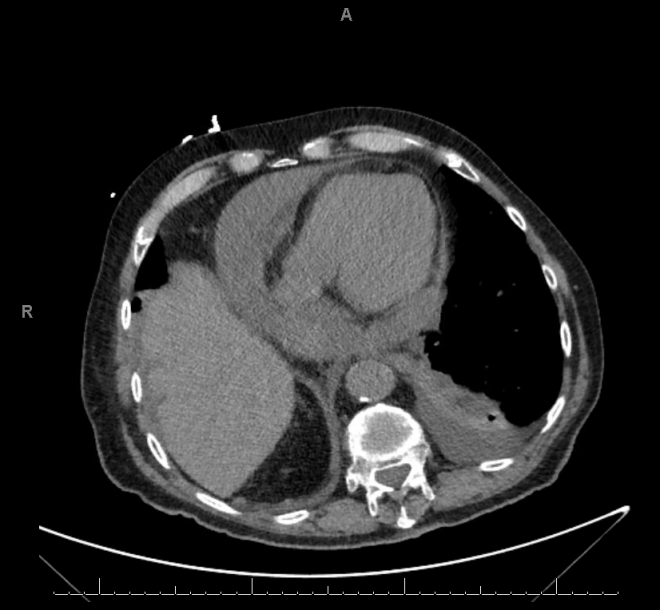The following is an expanded differential diagnosis of shock. Please let me know if you’d consider adding anything to the list!
Cardiogenic
- Arrhythmias
- Impaired contractility (volume overload, ischemia, drugs, toxins, electrolyte disorders)
- Structural problems (valvular abnormalities, etc.)
Obstructive
- Endovascular: pulmonary embolus, atrial myxoma or thrombus
- Exo-vascular: cardiac tamponade, hypertrophic cardiomyopathy, tension pneumothorax, tension mediastinum, breath stacking/auto PEEP, inferior vena cava compression (abdominal compartment syndrome, gravid uterus)

Hypovolemic
Consider various types of volume loss (diuretics, vomiting, diarrhea, perspiration, burns, etc.) but most especially consider “blood on the floor and five more”:
- Head (as with a neonate with subgaleal hemorrhage)
- Chest (hemothorax)
- Abdomen and pelvis
- Ruptured abdominal aortic aneurism
- Traumatic hemoperitoneum
- hemorrhagic ovarian cyst
- ruptured ectopic pregnancy
- splenic sequestration (in sickle cell patients)
- Subcapsular hematoma of the liver (as a complication of HELLP syndrome)
- Retroperitoneal space
- Femurs (secondary to fractures)
Distributive
- Sepsis
- Anaphylaxis
- Toxins (bacterial endotoxins, beta blockers, calcium channel blockers, clonidine, Ciguatera fish poisoning)
- Acute pancreatitis
- Liver failure
- Neurogenic (spinal cord trauma)
- Ovarian hyperstimulation syndrome
- Idiopathic systemic capillary leak syndrome
Endocrinal
- Diabetic ketoacidosis
- Iatrogenically-mediated glucocorticoid deficiency
- Adrenal insufficiency (“Addisonian crisis”)
- Hypothyroidism (myxedema coma)
- Diabetes insipidus


Leave a Reply